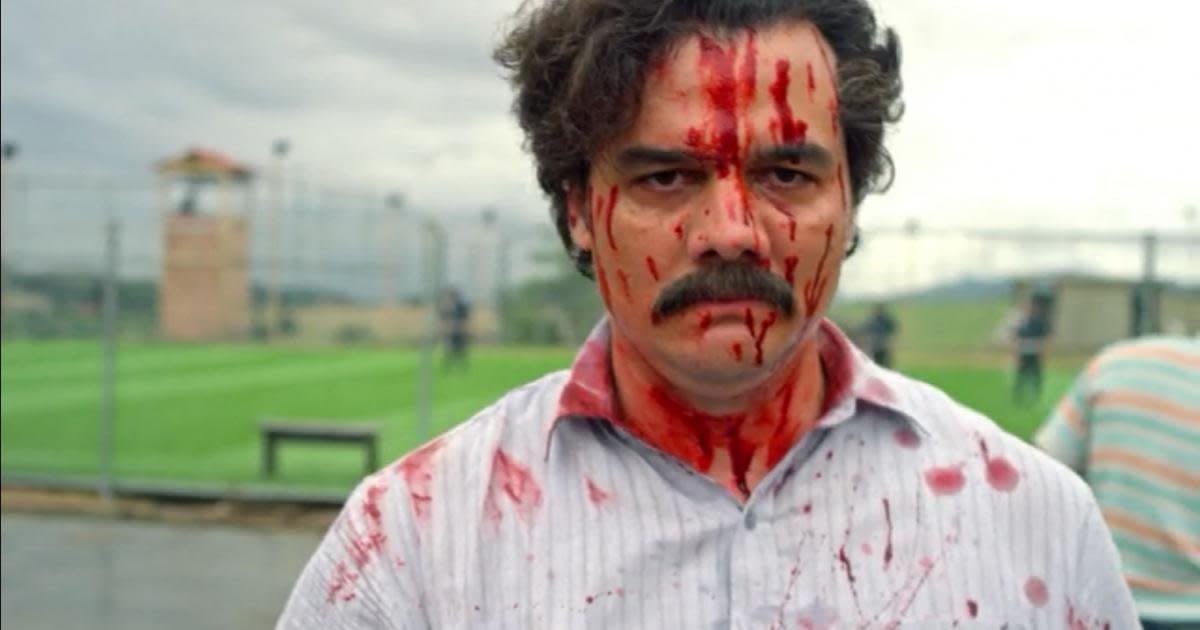‘Narcos’ Is Back, With an Even More Evil Escobar

Narcos is back to run out the clock on drug lord Pablo Escobar: The presumably final 10 hours of the Netflix drama once again relies heavily on the fine, minimalistic performance by Wagner Moura as Escobar to hold your interest, and insists on using the voiceover narration of a DEA agent to dare you to keep watching. Narcos may be about a drug war, but it’s also a production at war with itself.
As we rejoin the saga of the real-life crime kingpin, Escobar is trapped by Colombian law enforcement and the government’s army. He slips past them in a casual way, and we’re off: At its best, Narcos has a sure sense of how to dramatize the extent of the power Escobar had on his country and the fear he struck in the hearts of so many, including a large percentage of the people tasked with capturing him.
The show invariably contrasts this fearsome foe with his behavior at home, as a loving husband, father, and son. It is in maintaining a credible balance within these contrasting scenes that Moura keeps Escobar from becoming an exaggerated, Al Pacino-as-Scarface kind of super-gangster. The bad-guy Escobar — who wreaked awful damage with the drugs he sold and the orders he gave to kill his enemies, murdering many innocent bystanders in the process — is constantly compared to the Escobar who plays games with his children and has long, romantic chats with his wife, played by Paulina Gaitan. The show ought to be complimented as much for making sentimental-Escobar as convincing as violent-Escobar.
Related: ‘Narcos’ Stars Talk Pablo Escobar on the Run in Season 2
The overarching problem with the series is its framing device. American DEA agent Steve Murphy, played by Boyd Holbrook and a sad, droopy mustache, narrates the show as though to guide Americans through an alternate world. Or perhaps the shows creators, Chris Brancato, Carlo Bernard, and Doug Miro, wanted to make this part of their production an homage to the crime-sagas-with-narration, such as Martin Scorsese’s Goodfellas.
But as low-key fine as Holbrook’s performance is, Steve Murphy is written as one of the least interesting characters in this production, which leads us to wonder, Why is this low-level schmo telling us the tale? His words also frequently overreach for a kind of poetic eloquence the character we see onscreen simply does not possess. Thus even in final-hour 10, Murphy’s voiceover is comparing Colombia to a “place where the bizarre shakes hands with the inexplicable,” as though he were reading from some witty Gore Vidal essay on Gabriel García Márquez.
The second season of Narcos increases the number of enemies, the proliferation of factions arrayed against Escobar and his minions in the cocaine trade. They now include not only forces of the Colombian and American governments, but also the CIA, rival drug cartels, and a band of terroristic thugs calling themselves “Los Pepes,” which stands for “People Persecuted by Pablo Escobar.” It is to the producers’ credit that they manage to make all these various factions distinct in their appearance and motives.
While Narcos isn’t much for visual splendor — it’s filmed as a cut above your average basic cable-TV-true-crime documentary — it has Moura’s wonderful performance as its central image, one that will be what people remember about Narcos. Moura uses the bulk weight he put on for the role to communicate Escobar’s inner feelings. His heavy stomach is a stand-in for his heavy heart as Escobar becomes more melancholy about the pain his criminal acts have caused his family. And Moura’s usually quiet, blank expression is a perfect way to communicate the limits of Escobar’s sympathy: Sure, he feels sorry for his wife and kids and himself, but he also has a psychopath’s detachment from the suffering caused by the drug trade he has built.
Your engagement with Narcos is going to depend on how much you can become concerned about Escobar and his fate, how much you can look past the series’ easy melodrama to savor its more subtle and moving moments of political intrigue, and the small, vivid subplots about the Escobar gang’s individual lives. The suspense lies not in, as the pushy voiceover narration has it, the notion that “Pablo is never more dangerous than when you almost have him,” but when you see him in his struggle to keep his waning power.
Narcos is streaming now on Netflix.


